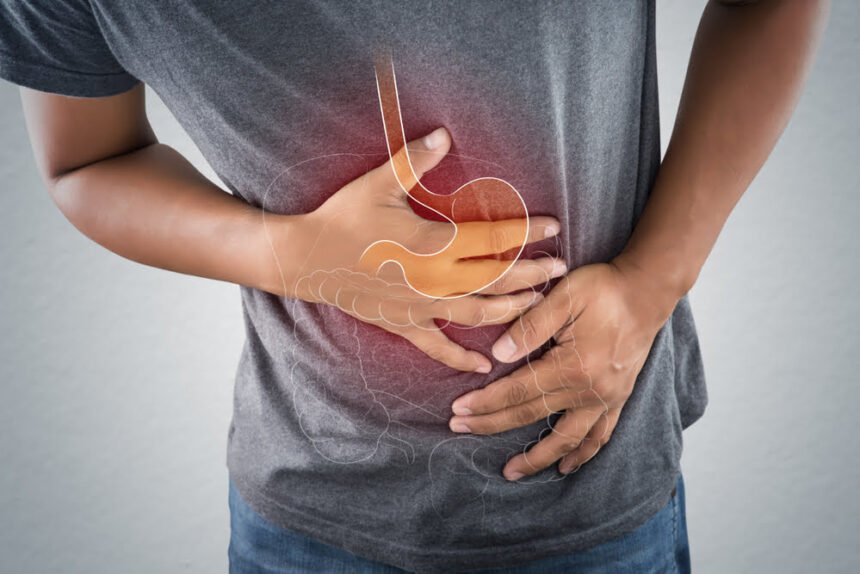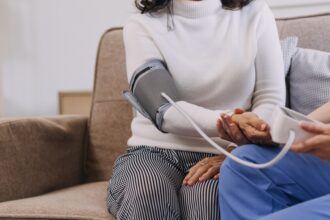Irritable bowel syndrome is a very prevalent gastrointestinal condition. Somewhere in the region of 2.5 to 3.5 million visits each year to general practitioners are due to IBS.
While About IBS reports that up to 15% of the population suffers from this condition, other experts put the number as high as 20%. This is a massive chunk of the general population in the states, and females make up many of these patients.
Out of all the IBS patients globally, around two-thirds will be female. IBS is actually a very common women’s health issue. Studies have speculated why this may be, but no one knows for sure so far. It is clear that IBS sufferers, be they male or female, have their quality of life impacted by this condition.
Luckily, there are several treatments and methods to reduce and alleviate the associated symptoms.
Here is a short article about IBS, the symptoms caused by the condition, and seven different treatments that can be used to help patients.
What Symptoms do Sufferers Experience?
Irritable bowel syndrome is an ailment that strikes both men and women. Certain foods or some medicines may cause attacks. Stress, infection, and changes in daily routines can also trigger IBS attacks.
When an attack happens, symptoms will appear as below.
- Bloating and excessive gas
- Constipation and/or diarrhea
- Worsening of menstruation symptoms
- Depression
- Abdominal cramps and pain
- Mucus in stools
- Fatigue
There are different types of IBS. These are known as IBS-C, IBS-D, and IBS-M. The first is linked to patients who suffer from constipation, the next one is IBS with diarrhea, and lastly, IBS with mixed bowel problems.
Female patients may find their menstruation symptoms worsen if they suffer from IBS. Depression is also a factor in this situation and IBS patients. According to Mindset Health, depression is three times more likely to occur in an IBS patient than in healthy individuals. For females, these symptoms are often worse than in males.
How do you Treat IBS?
The main issue with IBS is that it is not curable. This condition will be with most patients for their whole lives. This means that individuals may require different approaches.
Improving the quality of life in a patient with irritable bowel syndrome is the number one priority when treating them. However, there are ways to make this condition more tolerable. Many patients may find that they need to use a combination of treatments for the best effect. Others with minor symptoms may find some simple changes that can help them lessen most of the symptoms.
Seven Treatments for Irritable Bowel Syndrome
There are various IBS treatments, ranging from changes within the patient’s general routine and the way they live to medication. Here are seven ways that IBS patients can be treated.
Yoga/Exercise
This comes under lifestyle changes. Many patients find that light to moderate exercise can help reduce IBS symptoms. This means activities such as yoga and walking.
Prescription Medication
Not surprisingly, the most common way to treat IBS involves medication. There are plenty of approved drugs that can be prescribed for IBS patients. They often help with specific symptoms such as abdominal cramping or spasms. They are also used to relax bowel muscles.
Alosetron or Lotronex is one such drug. However, this one is different as it is only suitable for women, and even then, only females with severe IBS symptoms.
Some possible side effects can occur with these drugs. These include dry mouth, nausea, blurred vision. They can also, ironically, cause abdominal pain and constipation. However, millions of people have found relief from IBS through prescription medication.
The use of herbs
There is a good choice of herbs associated with helping IBS patients. For many, this is a preferable method to taking medication. For others, herbs are used in conjunction with their prescription.
Chamomile, peppermint, ginger, and aloe vera, have all been reported to aid IBS patients. In addition, specific herbs are also said to help patients with the three different types of IBS. For instance, chamomile is said to be suitable for IBS-D, while some believe slippery elm to help with IBS-C symptoms.
Acupuncture
Many patients prefer a more holistic approach. How effective this treatment is, is still up for debate. Some small studies have shown that acupuncture helps reduce bloating and the pain associated with IBS.
Acupuncture has long been used to treat severe pain in patients, so it may prove to be beneficial for IBS too.
Lowering Stress Levels
One of the triggers for IBS attacks is stress in the patient. Treatments can include exercises involving muscle relaxation and visualization. Deep breathing exercises are also reported to help IBS sufferers.
Another way to lower stress levels is through hypnotherapy. Even mobile apps are available now to help individuals use hypnotherapy at home.
You will also need to be mindful of the amount of stress that you are going to experience at work. Problems at work can lead to a lot of health complications, including worse IBS flareups.
Dietary Changes
One of the most common ways to reduce IBS symptoms is for the patient to change their diet. The low FODMAP diet is a widespread technique and has proved helpful for many individuals. FODMAP is short for fermentable oligosaccharides, disaccharides, monosaccharides, and polyols are the enemy of IBS sufferers. They are hard to digest and not easily absorbed in any individual’s gut.
Cutting these out, or reducing the amount that is consumed, can lead to significant improvement in the overall quality of life for someone with IBS.
Can IBS be Avoided?
While the condition cannot be cured, triggers can be avoided. In addition, as you can see with some of the treatments above, specific changes in a patient’s lifestyle can mean far fewer attacks.
There are many common causes for issues with the digestive system, and they mostly have to do with what the individual consumes. Cutting out fatty foods, reducing dairy products, and lowering protein intake can help lessen the chances of having an IBS attack.
Wheat is on the FODMAP no-go list, as are some other surprising food items. It may not surprise you to know that artificial sweeteners are not good for anyone, but honey is also a problem for IBS patients as are quite a few fruits and veggies.
Speaking to a general practitioner or Gastroenterologists should lead to the patient being given a diet sheet with foods to avoid. The amount of fiber consumed can also help or worsen IBS symptoms.
Are Women’s Symptoms Different?
Females can suffer from IBS symptoms far worse than men do. Partly this is due to women’s periods. During the monthly cycle, some females with IBS will experience chronic pain and depression.
General symptoms of IBS often appear to be worse in females, and mental health is of particular concern in these patients.
Summary
There are fortunately several ways to treat IBS now. Medication can certainly help with many aspects of this condition, but it is heartening to know that home, and hospital treatment for stomach pain and discomfort both exist.
For some patients, simply changing a few aspects of their life and reducing their intake of certain foods and ingredients can make an immense difference to their lives. A holistic approach is also available for those that prefer to go down this route, with many people reporting its benefits.










